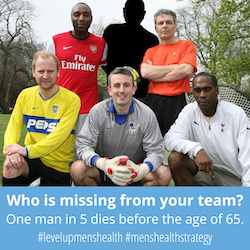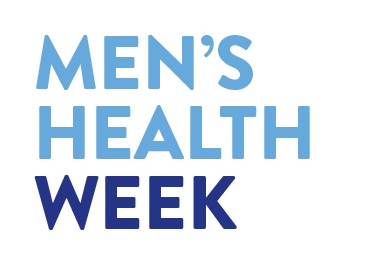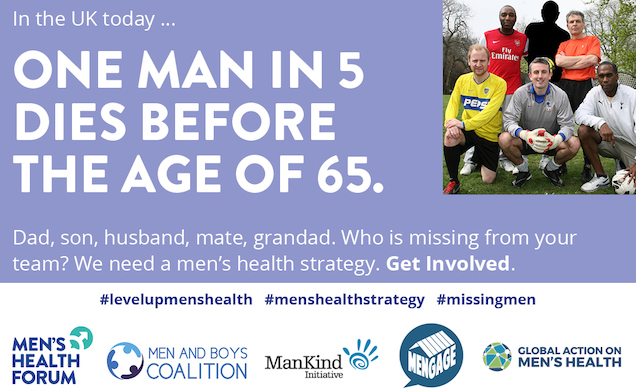What would Labour do about men's health? In 2001, Yvette Cooper, then minister for public health in the last Labour government, wrote the Foreword in the first issue of the Forum's journal, the Men's Health Journal.
This government has made clear its determination to improve health across the board and to tackle health inequalities. Men die five years younger than women on average - it is one of the starkest health inequalities we face. Heart disease, cancer, high blood pressure, suicide and accidents are all generally more prevalent among men and men on average visit GPs less than women. Those on low income have the worst life expectancy of all, and the health gap between men on high incomes and men on low incomes has grown.
Traditional health promotion campaigns have often not been a great success when it comes to men' s health and NHS services are often perceived as being geared towards women rather than men.
Both men and women will decide how to lead their lives, but we should ensure that health campaigns and health services respond to the needs of both sexes. That is why we are changing the focus of health campaigns and modernising health services . The Health Development Agency is examining what measures are most effective for improving men's health in different areas and preventing ill health. There are some innovative projects being developed that could be extended across the country. Health Action Zones, Health Improvement Programmes and Healthy Living Centres are also developing programmes to improve men's health and reduce health inequalities and men were specifically targeted in our new health promotion campaigns on flu vaccinations and teenage pregnancies.
The government also recently announced a four-fold increase in prostate cancer research funding and we are determined to improve the effectiveness of the prostate cancer tests on offer to make them available more widely. More convenient GP opening hours, walk-in centres, NHS Direct and NHS online should all help to improve the health information and access to services that are available.
I welcome the growing interest in men's health which will raise awareness and help tackle problems and inequalities. This is not about choosing between men's health and women's health. The partners, sisters and daughters of men who die prematurely or whose chronic illness requires years of care have much to gain from improving men's health. Action to improve men's health won't just help men, it is good for women, society and the economy too.
We need to work to tackle health inequalities wherever they occur. We are beginning to make progress, but there is still a lot to do. I hope that the Men)s Health Journal will play a leading role in raising important issues and I am confident that, by recognising the gender gaps in health, we can continue to modernise health promotion campaigns and health services to close them.



